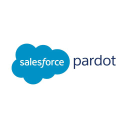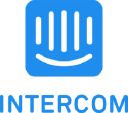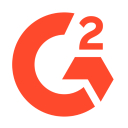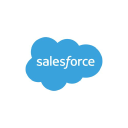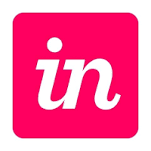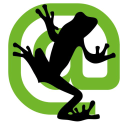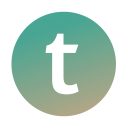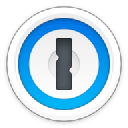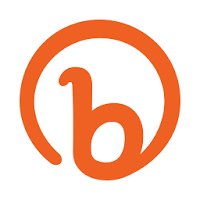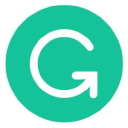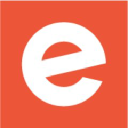
How We Launched A $750K/Month Idea Management Software
Hello! Who are you and what business did you start?
Hey there! I’m Rob Hoehn and I’m the Co-Founder of a B2B Software as a Service (SaaS) company called IdeaScale. It’s crowdsourcing software that companies and government organizations use to gather, prioritize, and transform ideas from the crowd. What do they turn them into? Those ideas become products, public policies, marketing campaigns, workplace improvements, and other fun stuff.
This means our customers are innovators (no eye-rolling, please!) - no, literally about 40% of our customers work in an innovation department. Our other customers are working in other departments, but they’re concerned with digital transformation, continuous improvement, business strategy, and other initiatives and they use our software to gather ideas from their employees, customers, partners, or the public on how they can make their organization better and what they should focus on next.
We’re a bootstrapped company, which means that we think of our customers as our investors. We are driven by their requests, their successes, their challenges, and their referrals. Over the course of ten years, we’ve grown our company to almost $750,000/month.
An example IdeaScale community:

What's your backstory and how did you come up with the idea?
I started the company ten years ago with my friends Vivek Bhaskaran, Jessica Day, and Josh Folk, because we kept hearing this question from our business contacts: “how are we supposed to get answers to the questions that we don’t know to ask?”
I was working at a bank as a programmer and moonlighting on some start-up projects with Vivek. Josh was a White House intern who had started his own sports and technology company and Jessica was a freelance marketer. So we really were just piecing IdeaScale together in the time that we had between our other projects.
This question of shining a light on our blind spots has always fascinated me. It’s something that we stumble on as individuals constantly, so of course it’s something we stumble on as a business or government agency. What we realized is that if we could help organizations gather ideas… they would start finding answers not just to the questions that they knew to ask - but to questions they’d never even thought of before. But it couldn’t just be a suggestion box - it needed features that would allow anyone to help select the best idea, improve it, and move it forward.
I cannot overstate this: customer retention is the anchor of your business (especially in the SaaS world) - do not under-invest in your customer service, support, and accounts team.
So we built our first version of IdeaScale just as President Barack Obama was taking office and launching the Open Government Initiative in which he stipulated that all government agencies needed a system that connected them to citizens in a way that was transparent, participatory and collaborative.
No other administration had ever mandated this before and (luckily) we knew a few people in government and were able to meet all of the qualifications for citizen engagement software and we launched to twenty-three federal agencies in our first year. That led to another 76 agencies the year after that and by then we had developed our minimum viable product and were able to start selling to the enterprise, as well.
Take us through the process of designing, prototyping, and manufacturing your first product.
Well, we figured for the first version of the product, we had to keep it simple. We wanted to make sure that people could do three things: post ideas, vote on ideas, and comment on ideas. But as simple as that sounds, there was still a lot to figure out…
We had to figure out how to categorize ideas so we came up with the concept of campaigns. We had to find ways to keep people from gaming the system so we had to create profiles for users and start maintaining some security standards. We wanted the network effect, so we built tools to share on social media or through email. We were drawing a lot of inspiration from other social feedback tools out there (Wikipedia, Reddit, and Quora), but this is what the first version of our product looked like:

I think the biggest challenge was the security testing. I mean - we were working with the federal government for Pete’s sake - so the standards were pretty high. We had to submit to multiple system tests and our ability to pass those tests was essential.
Describe the process of launching the business.
Well, as I said, one of the first contracts that we ever got was the White House who was launching to several agencies and when that happened, our launch shifted into overdrive. I basically lived at my friend’s house as my office while I worked to launch all of these communities in just a few weeks.
And the work at that time was a lot of detailed customization. IdeaScale was many of what they were calling “new media” companies (not just Twitter and MySpace, but tons of other companies that aren’t around anymore like Challenge post) and there were a lot of earned and unearned expectations. In fact, one of the biggest conflicts was about removing our logo from the site and we just wouldn’t do it. We were talking to our contact at the White House and he said something like “you know that we just got off the phone with Google and they took the YouTube logo off the video, right?” and we just shifted uncomfortably in our seats and said we were leaving our logo up there and they went with it.
But other things we were flexible on (probably to a fault), they wanted the fonts to be a certain way, they wanted this, strange, very stylized thumbs up to express voting. But it was a strange time because there hadn’t been a software system to do this before so people were making their best guesses at what would matter. All of the requests were oddly specific without any data to back it up and everyone wanted to be an expert but no one was.
But we did launch, we did learn a lot and after a while, we could start making recommendations that had been backed up by our own experience.
Don’t be too hard on yourself when you’re first starting out. You’re not a big company with a ton of resources and runway. After all, you need to do a lot of things and most of the time it’s just one or two people doing everything.
Since launch, what has worked to attract and retain customers?
From the beginning, IdeaScale has been built on inbound interest and that interest was largely generated by our ability to optimize our site for search. If you were looking for an “online suggestion box” or “idea management software” (granted these weren’t high traffic terms), it’s likely that you found us. We did this through our partnerships with our customers (particularly in the government) - offering an affordable solution as long as the site linked back to us. We also invested heavily in content marketing - generating tons of articles, blog posts, and text in our early days.
We also always charged a premium to white label our software so there was no mistaking an IdeaScale community for anything else. And we offered a freemium trial. If you enjoyed the experience, if you saw it work and wanted to try it at your own company, you could launch your own in just a few clicks and some of our initial prospects found this speed to launch really inspiring. They could be collaborating with their entire department, making decisions, prioritizing their workload after just a few minutes of configuration.
Now, this approach has changed as we’ve grown. To find and retain the customers that are the best fit for you, you do need to invest a little bit in outbound and pay-per-click marketing. The freemium model is still a lead source for us, but it’s definitely not our highest converting mechanism since we find that many freemium users are only interested in the product if it’s, well, free. Paying customers will sign up for a full demo to understand the full scope of functionality.
After all these years though, we’re still generating a great deal of our business through SEO, but you can see a lot is coming to us through other channels, as well. This is what it looked like in 2019:

How are you doing today and what does the future look like?
Well, we’ve been bootstrapped and profitable throughout the entire history of our business and I’m really proud of that. But our company looks very different than it used to when we were just getting started and that means change.
We’re pretty committed to the “Rule of 40” which is meant to balance revenue and profit growth. With this as a guiding principle, we’ve come close to achieving this each year as we’ve grown. We’ve been able to achieve this by measuring what works (in our case, search engine optimization) and de-prioritizing what doesn’t work for us (like social).
So far all of our international growth has been opportunistic and organic, but we’re hoping to invest more in these regions in order to grow, starting with Europe, Japan, and Australia.
Finally, in addition to building the business, IdeaScale is setting out that you can be a profitable, growing company while still maintaining ethical business practices. We are the first idea management software company to go carbon neutral, we have high commitments to equality, diversity, and workplace wellbeing. We believe in volunteering, for example, and we try and find group volunteering activities that we can all do together. It is one of the qualities that we’re looking for on our team: social responsibility and joy in helping others make the world a little bit better. I think that we all want to see that in the future of IdeaScale - more ideas that are helping to make the world a better place. Here’s the team volunteering on MLK Day:

Through starting the business, have you learned anything particularly helpful or advantageous?
I cannot overstate this: customer retention is the anchor of your business (especially in the SaaS world) - do not under-invest in your customer service, support, and accounts team. Excellence here will pay dividends and a failure to prioritize this is going to kill your growth. We thought we’d be great at it because we’re bootstrapped, but our company has gotten a whole lot healthier since we made it a guiding principle.
Also, all of the best hires that we’ve ever made have not been because of someone’s extensive experience in a role, but their demonstrated thirst for learning. Lots of entrepreneurs have talked about hiring for curiosityas the primary characteristic… and that definitely tracks with our experience. Our methods for identifying curiosity during the hiring process are still in development, but curiosity demonstrates both ambition and humility at the same time and folks who have mastered this are developing into leaders at our company.
What platform/tools do you use for your business?
Personally, I love Slack. It is something we use every day - it’s where we fight fires, it’s where we make each other chuckle and for a highly distributed team like ours (some of us in Bangladesh, some of us in New Mexico, and still others in Utah, Oregon, and elsewhere….) something like Slack is absolutely essential to coordinate our work and also give us a feeling of collegial collaboration.
And because we love Slack, we also really value Troops which brings the wealth of Salesforce data into actionable, transparent announcements for the team. We’ve configured it for just about any type of event (from when a new opportunity has been created to when our system reports a customer is at risk). These announcements that are visible to our team help us all to be aware of what’s going on company-wide. We’ve also made sure that the most exciting announcements are accompanied by funny gifs and that’s always good for making the time on Slack a little more delightful.
Another Slack add-on that we use constantly is HeyTaco - which is a Slack peer recognition tool. You can offer virtual tacos to your team members (just five a day) and those tacos can be turned in for small company perks: like a week of paid parking or coffee. We even invented something called the Golden Taco award as a way to honor our team players.

I also truly believe in the concept of inbox zero and it’s something I’m looking for in my employees: can you manage your inbox or are there things that are slipping through the cracks? There are lots of tools to do this, but my favorite lately is Superhuman.
What have been the most influential books, podcasts, or other resources?
Four Steps to Epiphany has definitely been instructive to our product choices. It helped build our business, but it’s also still something we talk about today. We absolutely look to our customers first when we’re trying to decide what to build - we actually have an ideation community dedicated to this (of course running on IdeaScale software), but it’s totally in line with Blank’s thinking about customer-centric solutions.

Also - the only conference that I go to every year is SaaStr. It’s amazing to hear from other leaders who are working in the SaaS industry. There are tips about marketing, sales, product, regulations, and more. I follow Jason Lemkin all year, but this event is a great culmination of many of the themes that he’s tracking and espousing throughout the year.
The Innovator’s Dilemma was definitely an inspiring book for IdeaScale and the problem we’re trying to solve (to make it easier for anyone in an organization to bring a great idea to life). Clayton Christensen died recently, but I’m sure these ideas will live on as more and more organizations try to keep up in a rapidly changing world.
Advice for other entrepreneurs who want to get started or are just starting out?
Gosh - there’s so much I’ve learned that I wish I knew when I was just at the beginning of this journey. One thing I would say is not to be too hard on yourself when you’re first starting out. You’re not a big company with a ton of resources and runway. After all, you need to do a lot of things and most of the time it’s just one or two people doing everything. You’re going to get things wrong, you’re going to disappoint people. The only way you’ll last is to maintain some optimism that you’re going to figure it out. That short memory for failure while maintaining lessons learned is what leads to experience and success.
I also cannot tell you enough how much it has mattered to have a really crisp set of financials that I can reference and hand over at any time. Deciding how you're going to track revenue, manage renewals and invoices, and get the systems to communicate is actually really powerful.
Are you looking to hire for certain positions right now?
Our team is definitely growing (we’re hiring in sales, support, and accounts right now) and we’re actually always willing to hear pitches on who we should be hiring even if the position isn’t listed on our site (seriously - we have a job posting for Name-Your-Own-Title). The most important thing is that you’re someone who believes in the power of good ideas and you’re excited about participating in a culture of continuous learning. Feel free to check out some of our roles on our careers page.
Here’s the rest of the team:

Where can we go to learn more?
If you have any questions or comments, drop a comment below!

Download the report and join our email newsletter packed with business ideas and money-making opportunities, backed by real-life case studies.

Download the report and join our email newsletter packed with business ideas and money-making opportunities, backed by real-life case studies.

Download the report and join our email newsletter packed with business ideas and money-making opportunities, backed by real-life case studies.

Download the report and join our email newsletter packed with business ideas and money-making opportunities, backed by real-life case studies.

Download the report and join our email newsletter packed with business ideas and money-making opportunities, backed by real-life case studies.

Download the report and join our email newsletter packed with business ideas and money-making opportunities, backed by real-life case studies.

Download the report and join our email newsletter packed with business ideas and money-making opportunities, backed by real-life case studies.

Download the report and join our email newsletter packed with business ideas and money-making opportunities, backed by real-life case studies.

